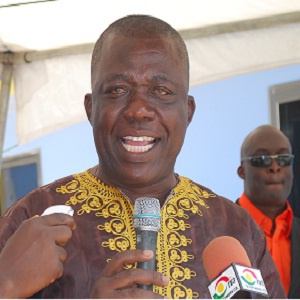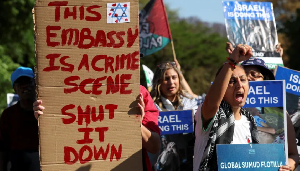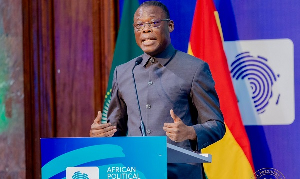The government has sunk about GH¢ 600 million between 2001 and 2004 into managing conflict situations in the Northern Region, Mr John A. Ackon, a Deputy Minister of Gender, Children and Social Protection, has said.
He observed that ironically, poverty and maternal mortality were still high in the three northern regions compared to the national average.
Mr Ackon made these remarks, on Tuesday, in Accra at the opening ceremony of the annual experience sharing to mark United Nations Security Council Resolution (UNSCR) 1325 conference, on the theme “ Fifteen years of the Implementation of UNSCR 1325 in West Africa: Looking Back and Looking forward.”
The conference was organised by the West Africa Network for Peace building (WANEP), in collaboration with the ECOWAS to provide the platform for participants to highlight the successes, best practices, and the lessons learnt in implementing national adaptation plans for the UNSCR 1325 in West Africa.
The UNSCR 1325 was passed on October 31, 2000, to give critical recognition of the crucial role women have to play in processes of conflict prevention, resolution and peace building, as well as the specific impact of war on women’s and girls’ lives.
The two-day conference, which brought together 55 participants from the 15-member states of ECOWAS also sought to examine the challenges and the way forward, having in view the emerging peace and security threats in the region.
The Deputy Minister said in spite of the continued praises on Ghana as an oasis of peace in a sub-region, there were widespread protracted and ‘budding’ violent conflict situations that were seriously undermining the development aspiration of the people.
Among these, he said, were a number of chieftaincy succession disputes, communal conflicts, religious and land disputes.
He described them “as situations that are suffocating development initiatives across the length and breadth of the country.”
Mr Ackon said: “Studies have shown that, women and children tend to bear the greatest burdens associated with these conflicts. Sadly, however, peace infrastructures: that are critical to the sustainable, socio-economic and political development of these communities have tended to focus largely on the role of men; with women playing subordinating roles.”
Consequently, he said, measures that were identified to redress the conflict had in some cases further worsened women’s situations.
“Available research ironically indicates that in conflict situations that erupted in some Ghanaian communities, such as Dagbon, Bawku, Kete-Krachi, Bimbilla, Hohoe, Alavanyo and Nkonya, women have shown a great resolve in ending acts of violence in their communities by demonstrating how they badly need peace to prevail in the communities, for normal life-sustaining socio-economic activities to thrive,” the Deputy Minister stated.
“On the other hand, men persistently show signs of hostility and want to show ‘where power lies’ oblivious to the unquantifiable cost of their belligerent and violent behavior, which women and children continue to bear,” he added.
Mr Ackon said it was important that the operational implementation of UNSCR 1325 is carried out in the light of emerging threats such as terrorist groups and drug traffic in the sub-region.
"To implement resolution 1325, it must be noted that as long as women are not considered as equal partners and do not have the same possibilities to participate in all political, social and economic activities, it will be difficult to satisfy the requirements contained in the resolution,” he said.
Mr Chukwuemeka B. Eze, the Executive Director, WANEP, said there must be a sustained leadership by a dedicated team to drive and coordinate the implementation of UNSCR 1325 national action plans, as well as a leadership and commitment from individual sectors and stakeholders to deliver success.
He said the existing institutional frameworks and legislations must include women in peace negotiations, peace-building and post conflict reconstruction.
General News of Thursday, 22 October 2015
Source: GNA













